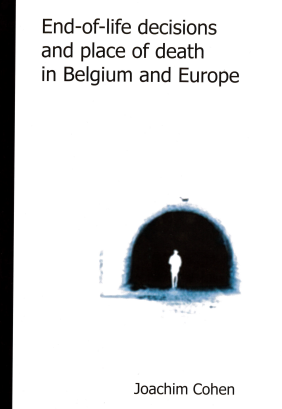Author: Joachim Cohen
Date: 31-05-2007
Promotor: Prof. dr. Luc Deliens
Co-Promotors: Prof. dr. Johan Bilsen and Prof. dr. Gerrit van der Wal
SUMMARY OF THE DISSERTATION
Can we put a degree of control to when, where, and how we die? Addressing this question has been one of the leitmotifs of the palliative care and right-to-die movements’ efforts to ensure good quality of end-of-life. It put dying well on the agenda as an aspiration. The issues embedded in this question were also the stimulus for the two main aims of this dissertation on dying well in Belgium and Europe:
- describing attitudes towards and practice of euthanasia and other possibly lifeshortening
medical end-of-life decisions,
- describing who is dying in what setting, and for what reasons.
Before addressing these specific end-of-life issues, and in order to elucidate the relevance of these aims within a wider societal context, we will first give a brief description of how death and dying have altered in recent history, from an era of medicalisation and institutionalisation to an era where quality of death and dying became an issue of concern for a large societal basis. Within this framework we will sketch the issue and relevance of medical end-of-life decisions (and attitudes towards these decisions), and of place of death.

